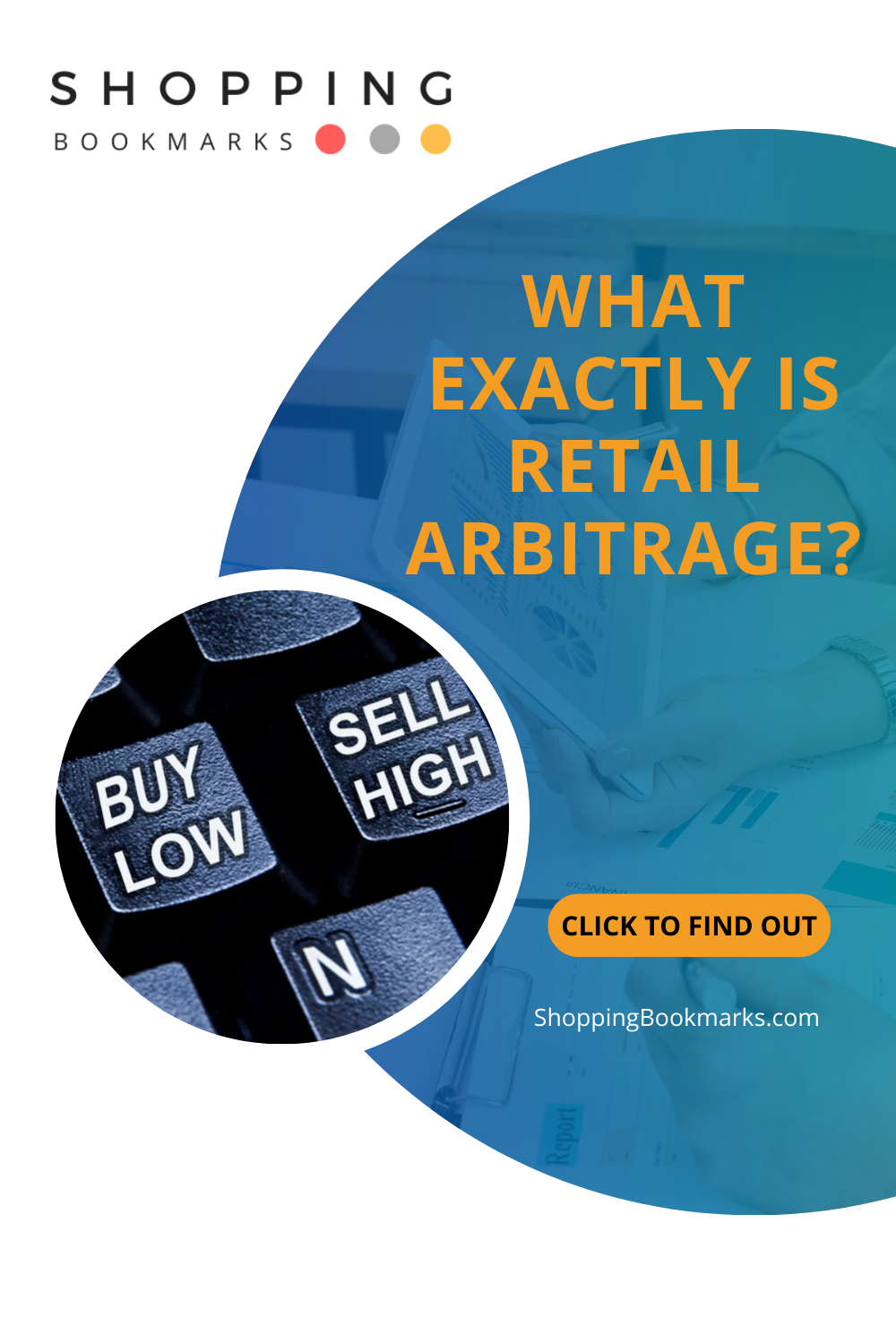Retail arbitrage may sound like a foreign concept that you’ve never heard of. But don’t worry, we’re here to break it down for you!
You may have heard the term “retail arbitrage” but not know exactly what it means.
Retail arbitrage (also known simply as the acronym “RA”) is the process of finding products at a lower price from one retailer and then selling them at a higher price to another retailer. It’s a great way to make money on products you know people will want to buy.
Imagine being able to purchase items at a discount and then sell them for a profit! It’s like getting free money just by taking advantage of price differences between stores.
Contents
How Retail Arbitrage Works
The way arbitrage works is pretty simple. You find a product you want to sell at a lower price from one retailer and then sell it at a higher price to another retailer.
For example, let’s say you find a shirt for sale at Walmart for $10 but the same shirt is being sold for $25 online. You would purchase the shirt from Walmart and then sell it online for $25, making a profit of $10 after you pay seller fees of $5. That’s a 100% return on investment (ROI).
Is Retail Arbitrage Legal?
Yes, it is legal. You are simply taking advantage of price differences between two retailers. However, it is important to note that you should always obey the laws and regulations of the stores where you are selling products.
Pros and Cons of Retail Arbitrage
Here are some facts to understand about this new type of approach in business.
Retail Arbitrage Pros
- You can make a lot of money if you know what you’re doing.
- It’s a great way to buy products at a discount.
- You don’t need any special skills or training.
- Anyone can do it.
These are just a few of the pros associated with reselling goods. As you can see, there are many reasons why this approach to business is gaining in popularity.
Retail Arbitrage Cons
- It can be time-consuming to find good deals. Click here to see the best 25 stores for sourcing items to resell.
- You need to have a lot of inventory if you want to make a lot of money, therefore you need to spend money to make money. If you don’t have money to invest, click here to see arbitrage stores that offer financing options.
- There is some risk involved, as you may not be able to sell the product for the price you want.
- Some manufacturers may send you an IP violation restricting you from selling their brand.
These are just a few of the cons associated with retail arbitrage.
7 Tips to Getting Started in Retail Arbitrage
Kickstart your new business journey with these tips.
1. Know what you’re looking for.
This includes knowing the average prices of products in different stores and what types of products sell well. There are several apps out there that you can use to scan the UPC while in the stores to see the going prices online.
2. Do your research.
Find out which retailers offer the best prices on the products you want to sell.
3. Make a list of products you want to sell.
You’ll need this when you start looking for deals. Some people like to concentrate on a certain category such as toys, shoes, or health and beauty. Others will sell anything they can make a profit on.
4. Have a plan.
Decide how much money you want to make and how many products you need to sell to reach your goal after you deduct buying inventory costs and platform fees. If you need some seed money to start your reselling business, click here for reseller financing loan options.
5. Create seller accounts.
There are various marketplace platforms where you can sell your arbitrage goods.
Most popular retail arbitrage seller platforms
Here are the most popular places you can list your products for sale.
6. Get organized.
You’ll need somewhere to store all of your inventory! Find a place in your home that you can use to keep everything organized. Most retail arbitrage newbies start in their garage, which will soon spill over into your house, trust me! You may eventually need to rent a storage unit or even a warehouse. If you accumulate returns or have a plethora of items that you can’t resell, click here to see how to have a liquidation sale.
7. Start small.
Don’t try to sell similar products at once. It’s better to start slow and increase your inventory as you get more experience.
Before jumping into the business, here are some resources, guidebooks, and sites to ponder:
Resources To Learn More About Retail Arbitrage
- Retail Arbitrage 101 – The Ultimate Guide for Buying Retail and Reselling
- How to Make Money with the Amazon Fulfillment Program (FBA)
- The Selling Family: Top 5 Ways We Source Inventory
- How to Know Which Items to Buy for Amazon FBA
- The Balance: What Is Retail Arbitrage?
- Retail Arbitrage: Full Beginner’s Guide From A 7 Figure Seller
- The Ultimate Guide to Retail Arbitrage on Amazon
- 11 Strategies To Maximize Your Retail Arbitrage Sourcing
- What is Retail Arbitrage? A Simple Definition
FAQs on Retail Arbitrage
Here are some frequently asked questions about reselling.
Q: What should I do if I don’t have any space to store my inventory?
A: You may need to consider renting storage space or finding a friend or family member who can help you out.
Q: How much money can I make with retail arbitrage?
A: There is no limit to how much money you can make with this selling strategy. It depends on factors such as the products you sell, the prices you sell them for, and the amount of time and effort you’re willing to put into it.
Q: What are the risks of retail arbitrage?
A: The biggest risk of retail and online arbitrage is that you may not be able to sell all of the products you purchase. This can lead to losses if you’re not careful.
Final Thoughts
Retail arbitrage is a great way to make money on products you know people will want to buy. By finding products at a lower price from one retailer and then selling them at a higher price to another retailer, you can make a profit on the items. Consider giving reselling a try – it could be the perfect side hustle for you!
May this article suffice as a guide to get you started should you feel inclined to delve further into making money as a reseller. Thank you for your time.


